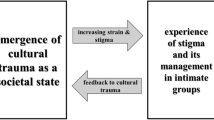Abstract
This essay examines Maya Angelou’s 1980 memoir All God’s Children Need Traveling Shoes. From 1962 to 1965, Angelou was part of a community of African American writers, artists, intellectuals, and activists who settled in Ghana as its first president, Kwame Nkrumah, seemed poised to usher in a new era of pan-African unity. Hoping to situate her identity within this dream of global pan-Africanism, Angelou narrates her relationship to Africa through the trope of diaspora-as-family. Her use of this metaphor, however, is complicated by her growing awareness of the involvement of Africans in the trans-Atlantic slave trade, as both victims and participants. While other scholarship on All God’s Children focuses on Angelou’s supposed inability to achieve a diasporan identity, I argue that Angelou is successfully able to come to terms with the trauma of the middle passage by listening to the “voices” of her enslaved ancestors (as they emerge within her own consciousness), and participating in an indigenous Ewe mourning ritual that she inadvertently precipitates. As a result of these experiences, Angelou comes to realize that while narration is important to the formation of both identity and community, African-descended people living in the Americas must first grapple with a historical trauma that exceeds the limits of narration. It is only when Angelou realizes this that she allows herself to be receptive to the spectral voices of her enslaved ancestors and the power of mourning to forge community across divides of time and place.
Similar content being viewed by others
References
Angelou, M. (2004). The collected autobiographies of Maya Angelou. New York: Random House.
Caruth, C. (2019). Unclaimed experience: Trauma, narrative, and history. Baltimore: JHU Press.
Cone, J. H. (1997). God of the oppressed. Maryknoll: Orbis.
Gruesser, J. C. (1990 Spring 1990). Afro-American travel literature and Africanist discourse. Black American Literature Forum, 24(1), 5–20.
Hirsch, E. G. & Kasonowicz I. M. “JewishEncyclopedia.com.” “Primogeniture.” JewishEncyclopedia.com , www.jewishencyclopedia.com/articles/12362-primogeniture. Accessed: July, 11, 2018.
Jacobs, S. (2018)“When Maya Angelou lived in Egypt and Ghana.” Africa Is a Country, africasacountry.com/2014/05/when-maya-angelou-lived-in-ghana. Accessed: July 11, 2018.
Morrison, T. (2004). Beloved. New York: Knopf Doubleday.
Schramm, K. (2006). Imagined pasts-present confrontations: Literary and ethnographic explorations into explorations into pan-African identity politics. In S. Arndt & M. S. von Brisinski (Eds.), Africa, Europe, and (Post)Colonialism: Racism, Migration and Disapora in African Literatures (pp. 243–256). Bayreuth University.
Smithers, G. D. (2011). Challenging a pan-African identity: The autobiographical writings of Maya Angelou, Barack Obama, and Caryl Phillips. Journal of American Studies., 45(3), 483–502.
Author information
Authors and Affiliations
Corresponding author
Additional information
Publisher’s Note
Springer Nature remains neutral with regard to jurisdictional claims in published maps and institutional affiliations.
Rights and permissions
About this article
Cite this article
Taylor, D. “A History We Can Neither Accept nor Deny: Feeding and Purging the Spirits in Maya Angelou’s All God’s Children Need Traveling Shoes”. J Afr Am St 24, 258–268 (2020). https://doi.org/10.1007/s12111-020-09472-9
Published:
Issue Date:
DOI: https://doi.org/10.1007/s12111-020-09472-9




